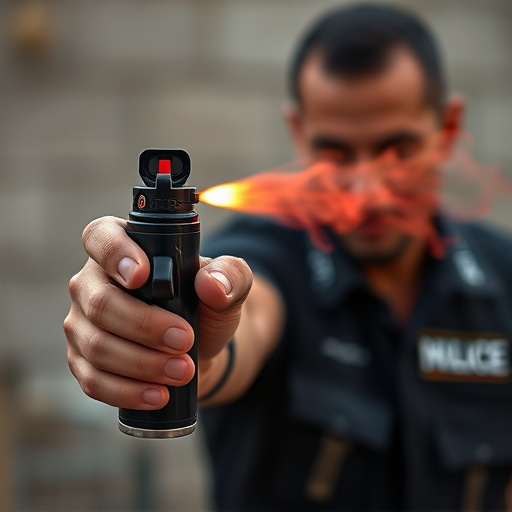Storing pepper spray at home requires a balance between accessibility for personal defense and securing it safely out of children's and pets' reach. Keep it in cool, dry conditions, use childproof locks or safes, check expiration dates regularly, and understand local laws regarding self-defense tools to ensure its reliability when needed most.
Defensive spray has emerged as a powerful tool for civilian protection, offering a non-lethal yet effective means of deterring potential threats. As awareness grows about personal safety, understanding and responsibly using pepper spray becomes paramount. This article delves into the composition and effectiveness of pepper spray, provides essential tips for safe storage at home, and explores legal considerations surrounding its use for civilian protection. Learn how to prepare and protect yourself effectively.
- Understanding Pepper Spray: Its Composition and Effectiveness
- Storing Pepper Spray Safely at Home: Tips and Precautions
- Legal Considerations and Responsible Use for Civilian Protection
Understanding Pepper Spray: Its Composition and Effectiveness
Pepper spray, a powerful tool for personal defense, contains capsaicin, the active ingredient derived from chili peppers. This chemical irritates the eyes and respiratory system, temporarily disabling an attacker. Its composition includes a concentrated solution of capsaicin, combined with other ingredients like water, alcohol, and binding agents to ensure even distribution upon activation.
When considering storing pepper spray at home, understanding its effectiveness is crucial. Pepper spray has proven itself reliable in self-defense scenarios, offering a non-lethal way to disable an assailant long enough for escape or help arrival. Proper storage involves keeping it out of reach of children and pets, in a cool, dry place, and ensuring the safety mechanism remains intact to prevent accidental activation.
Storing Pepper Spray Safely at Home: Tips and Precautions
When storing pepper spray at home, it’s crucial to prioritize safety and accessibility. Keep it out of reach of children and guests by securing it in a high, locked cabinet or safe. This prevents accidental discharge and ensures that only authorized individuals can access it in an emergency. Use childproof locks or safety straps for added protection.
Additionally, store your pepper spray away from heat sources, direct sunlight, and moisture to maintain its effectiveness. Keep it in a cool, dry place like a pantry or utility room. Regularly check the expiration date and ensure the spray is functional by testing it periodically. Store spare cans separately, but equally secured, for quick access during emergencies.
Legal Considerations and Responsible Use for Civilian Protection
When considering defensive spray for civilian protection, it’s crucial to understand the legal implications and responsible use guidelines. Each jurisdiction has specific laws regarding the possession and use of pepper spray or other similar self-defense tools. Before purchasing, ensure you are familiar with local regulations, as violations can result in hefty fines or even jail time.
Responsible use involves proper storage at home, out of reach of children and unauthorized individuals. Pepper spray should be kept in a secure location, ideally locked up, to prevent misuse. Additionally, familiarize yourself with the spray’s functionality, including its range, duration, and any safety features, to ensure effective and safe protection when needed.
Pepper spray is a powerful tool for civilian protection, but its effectiveness depends on proper understanding and responsible use. When stored safely at home, as outlined in this article, it can provide peace of mind and enhanced security. Always remember that legal considerations vary by region, so stay informed about local regulations. By following these guidelines on storing pepper spray at home and practicing responsible use, civilians can better protect themselves and their loved ones.
